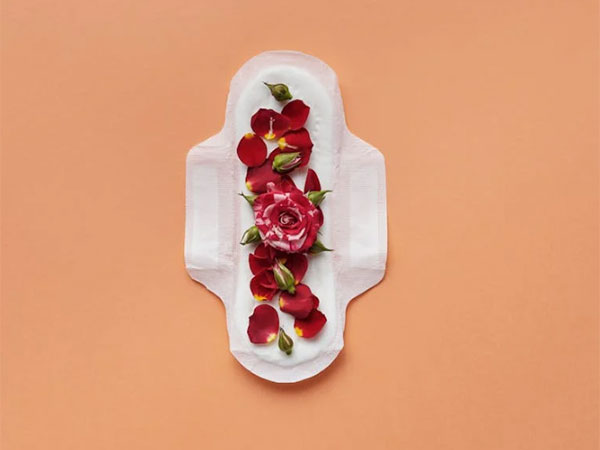By Divya Malhotra
New Delhi [India], May 28 (ANI): Menstrual Hygiene Day, observed annually on May 28, is not just a day of awareness; it’s a call for action, for change.
This year’s theme, “Together for a #PeriodFriendlyWorld,” envisions a world where menstruation is no longer taboo or a burden, but a normal, respected part of life for all.
As this day serves to break stigmas and promote awareness, doctors and experts across India are urging people to create inclusive, period-positive spaces where women and girls can live, learn, and work without fear.
Dr Tripti Raheja, Lead Consultant, Obstetrics and Gynaecology at CK Birla Hospital, Delhi, underscored the importance of menstrual hygiene in the context of women’s health and dignity.
“Menstrual hygiene management is a fundamental part of women’s health and dignity. Yet, many women and girls still face stigma, lack of access to sanitary products, and inadequate facilities, especially in workplaces and schools,” she told ANI.
“It’s time every workplace and educational institution ensures the availability of sanitary napkin vending machines and clean, private washrooms. No woman should have to feel anxious or unprepared during her periods,” she added.
In many parts of the world, lack of proper sanitary facilities and “stigma” around menstruation continue to create significant barriers for women and girls.
Inadequate access to menstrual products, clean water, and safe disposal systems often results in emotional and physical discomfort, putting women’s health and productivity at risk.
Dr Raheja advocates regular awareness workshops to educate people about menstrual health, break taboos, and promote empathy.
“Creating inclusive and period-positive spaces isn’t just a women’s issue, it’s a matter of basic human rights and gender equality,” she added.
Dr Ankita Mittal, Founder-Director and Senior Consultant-Obstetrics and Gynaecology, at Adrita Health and Wellness, said that menstrual hygiene is an often-overlooked issue, especially in schools and workplaces.
“Menstrual hygiene remains one of the most pressing yet overlooked public health challenges in India. Despite women making up nearly 48 per cent of the population, menstrual hygiene management continues to be inadequate, especially in schools and workplaces,” said Dr Mittal.
A 2019 WHO study revealed that 43 per cent of schools globally lacked basic handwashing facilities with soap, and this figure rises to 70 per cent in the least developed countries.
This statistic starkly underlines the urgent need for facilities like sanitary napkin vending machines, safe disposal units, and clean running water in schools and workplaces.
“Providing sanitary napkin vending machines and safe disposal units is not just a matter of convenience, it’s a basic necessity that ensures health, dignity, and comfort for female employees and students. It also reflects a truly inclusive and progressive society,” Dr Mittal noted.
Creating accessible, clean, and private spaces for menstruation ensures that girls and women can participate confidently in school, college, and the workplace without feeling isolated.
Dr Balvin Kaur Ghai, Consultant – Obstetrics and Gynaecology at Livasa Hospital, Mohali told ANI that menstrual hygiene is an essential component of women’s health, dignity, and fundamental human rights.
“Nevertheless, this critical issue remains enveloped in silence, stigma, and insufficient infrastructure,” she said, adding, “Despite advancements in various healthcare fields, menstruation continues to be a predominantly overlooked topic in public discourse.”
The lack of proper facilities often forces women to cope in silence, compromising their ability to engage fully in daily activities.
Dr Ghai stressed that sanitary napkins, private facilities, and disposal systems in every workplace and educational institution are not luxuries, but necessities.
“Having access to sanitary private facilities and menstruation supplies empowers women to manage their periods in a dignified and safe way,” she said.
As societal conversations around menstruation evolve, the need for both men and women to be sensitised to the topic becomes even more crucial.
“Boys and men should also be sensitised on this topic so they can support their sisters, female colleagues, and loved ones appropriately,” Dr. Ghai emphasised.
“Change begins with simple, thoughtful action,” she added.
On Menstrual Hygiene Day, the collective call for action is clear: breaking the taboo, ensuring equal access to menstrual hygiene products, and creating a world where menstruation is seen as a normal and natural process. (ANI)
Disclaimer: This story is auto-generated from a syndicated feed of ANI; only the image & headline may have been reworked by News Services Division of World News Network Inc Ltd and Palghar News and Pune News and World News
HINDI, MARATHI, GUJARATI, TAMIL, TELUGU, BENGALI, KANNADA, ORIYA, PUNJABI, URDU, MALAYALAM
For more details and packages












